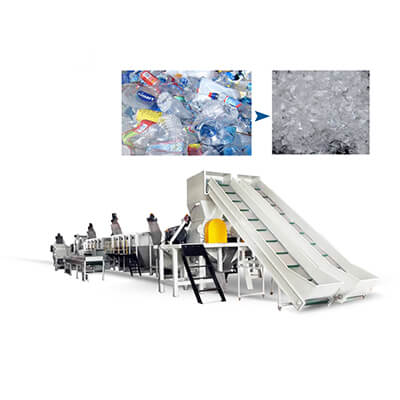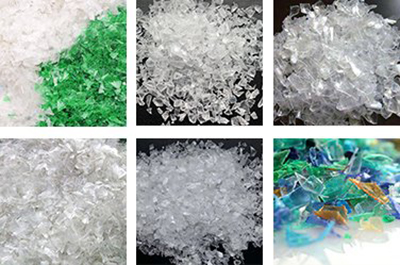© 2018 Zhangjiagang Sevenstars Machinery Co.,Ltd. All rights reserved. Site Map Designed by iwonder.cn privacy policy
Plastic recycling machine factory with 15 years experience
Plastic recycling machine factory with 15 years experience
Reducing plastic consumption has been a hot topic all over the news lately. What PET plastic is exactly and what happens in the PET bottle recycling process? Who picks them up and where do they go? Today, we're going to share the plastic bottle recycling process with you. What Is PET Bottle Recycling?
What Is PET Bottle Recycling?

PET, or Polyethylene Terephthalate, is a compound that makes up single-use plastics. PET is what many of our household items are. Everything we see in our supermarkets such as water bottles, milk jugs, and dish detergent bottles contain a certain amount of PET.
PET bottle recycling is the process of extending the life of a single-use plastic bottle. But we cannot recycle all plastics. Some plastic bottles change in chemical properties after a certain amount of time. And the bottles can leak chemicals or grow bacteria, which can make us sick.
What Happens After You Throw A PET Bottle Out
Every country and every city has its own laws and rules about recycling but the process to recycle PET bottles are more or less the same.
After you throw away a plastic bottle in the recycling bin, the recycling company picks them up. They then bring them to the closest plastic recycling facility.
Sorting
At the recycling facility, the first thing the workers will do is sort out all the materials. Machines and humans work together to sort and pick out anything that is not recyclable. Afterwards, they'll sort the bottles by types of plastic and colors
Sorting is crucial in the recycling process. Many people do not toss away their trash in the right bins. The sorting process is to make sure nothing unrecyclable gets mixed in and contaminates the rest of the batch.
The type of plastic a bottle is made out of is extremely important. Hint: there is usually a triangle with a number in the center on all bottles. These numbers tell us what kind of plastic they are.
Shredding
After sorting, a machine called the plastic bottle shredder shreds the plastic bottles into chipped size pieces. This makes the plastic easier to clean.
Washing
Once they're small enough, they'll go through a washing stage where each piece is washed with warm soapy water. The goal here is to remove all the labels, all the residues from glue, and sanitize everything.
Granulation
Once the PET pieces are cleaned and broken down even further into smaller flakes in a machine called the granulator. After that, machines clean them again if needed. At this point, we call these flakes rPET or recycled plastic bottle flakes.
Testing
Once all the bottles are sorted and cleaned, testing begins. Each rPET batch is tested to see if they meet food-grade standards. If they pass, the can be used to make bottles again or other types of food containers. Sometimes they are also turned straws or takeout food containers.
If the flakes do not meet food-grade standards, the company sells them to factories in other countries. Once there, they will turn into everyday household items such as welcome mats, pillow stuffing, or clothes.

Current State of Plastic Recycling
Over the years, recycling education has improved for the public. But, there are still some challenges to getting people to recycle plastic. We've certainly come a long way since the world first introduced disposable soda bottles in 1975.
Technology is only becoming better from here. Each day, we're finding new ways to reuse recycled materials. If every piece of plastic has a lifespan of 500 years, then for sure, we can find better uses for them than sitting around. If scientists can find a way to recycle all our plastic, imagine how much less waste we would have in our landfills.
If you would like to learn more about PET bottle recycling, please visit our website for more.